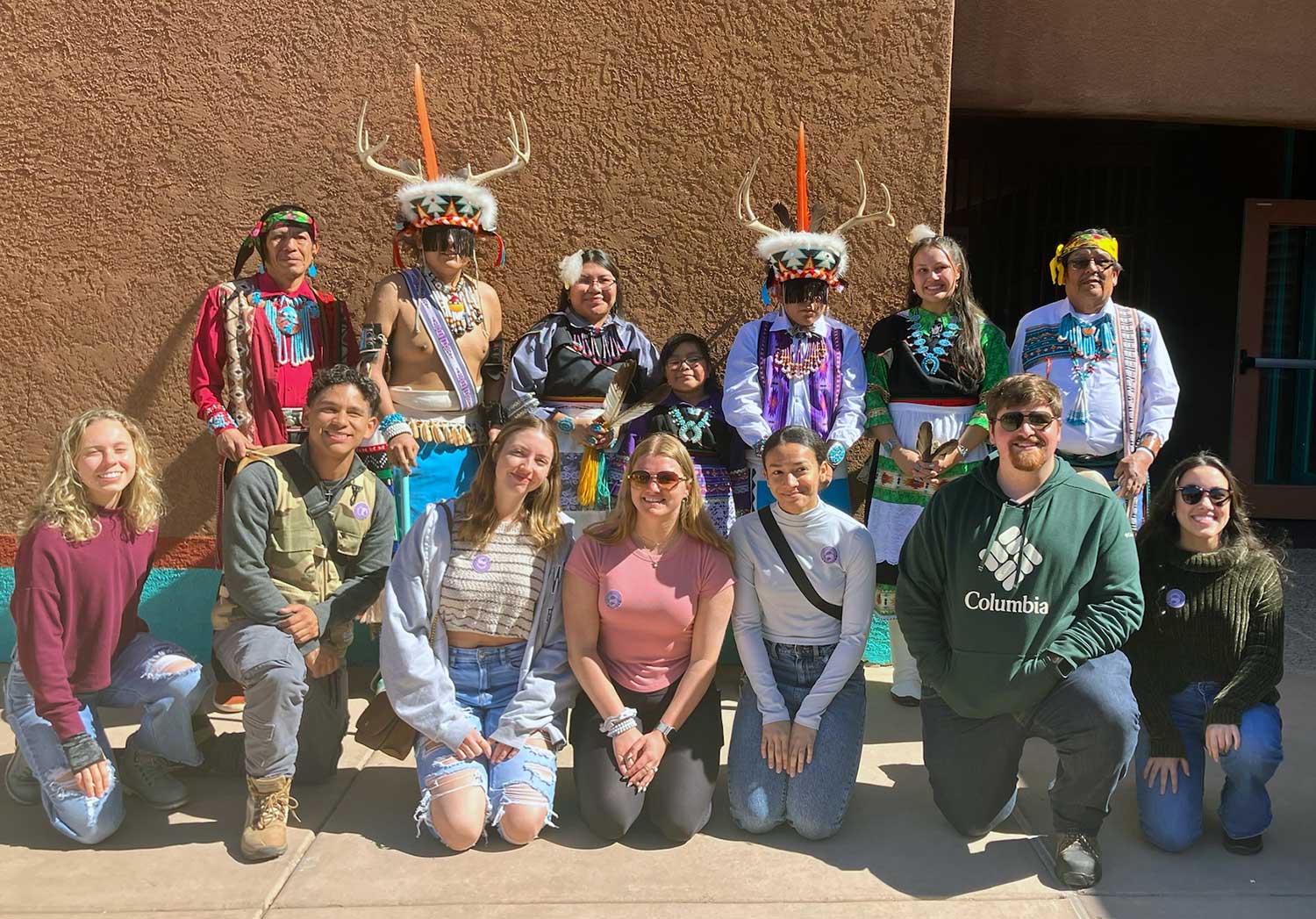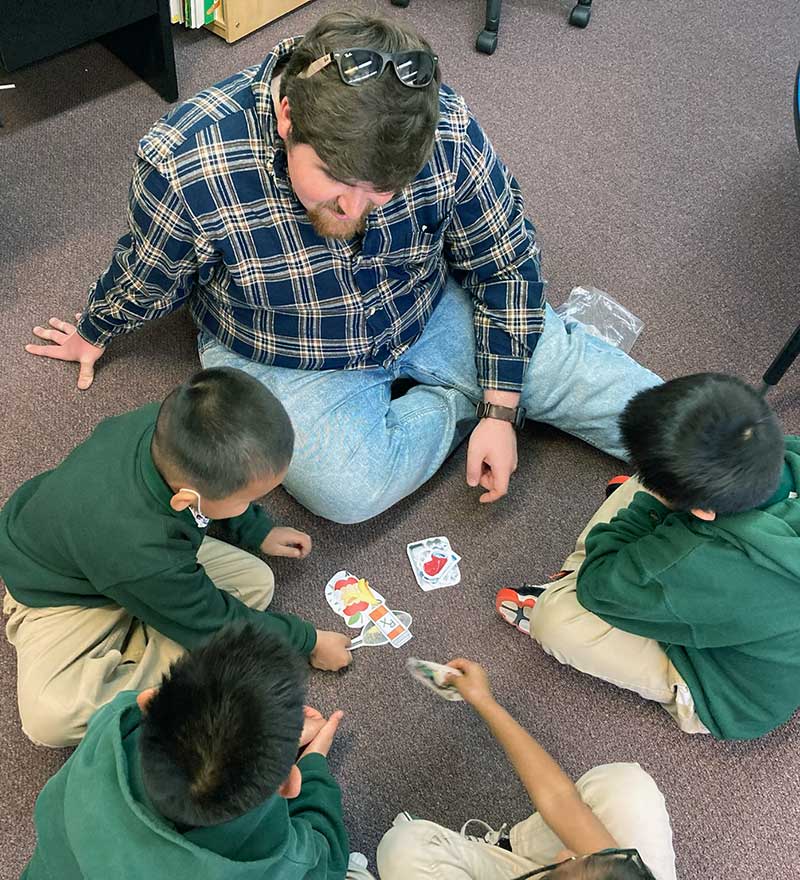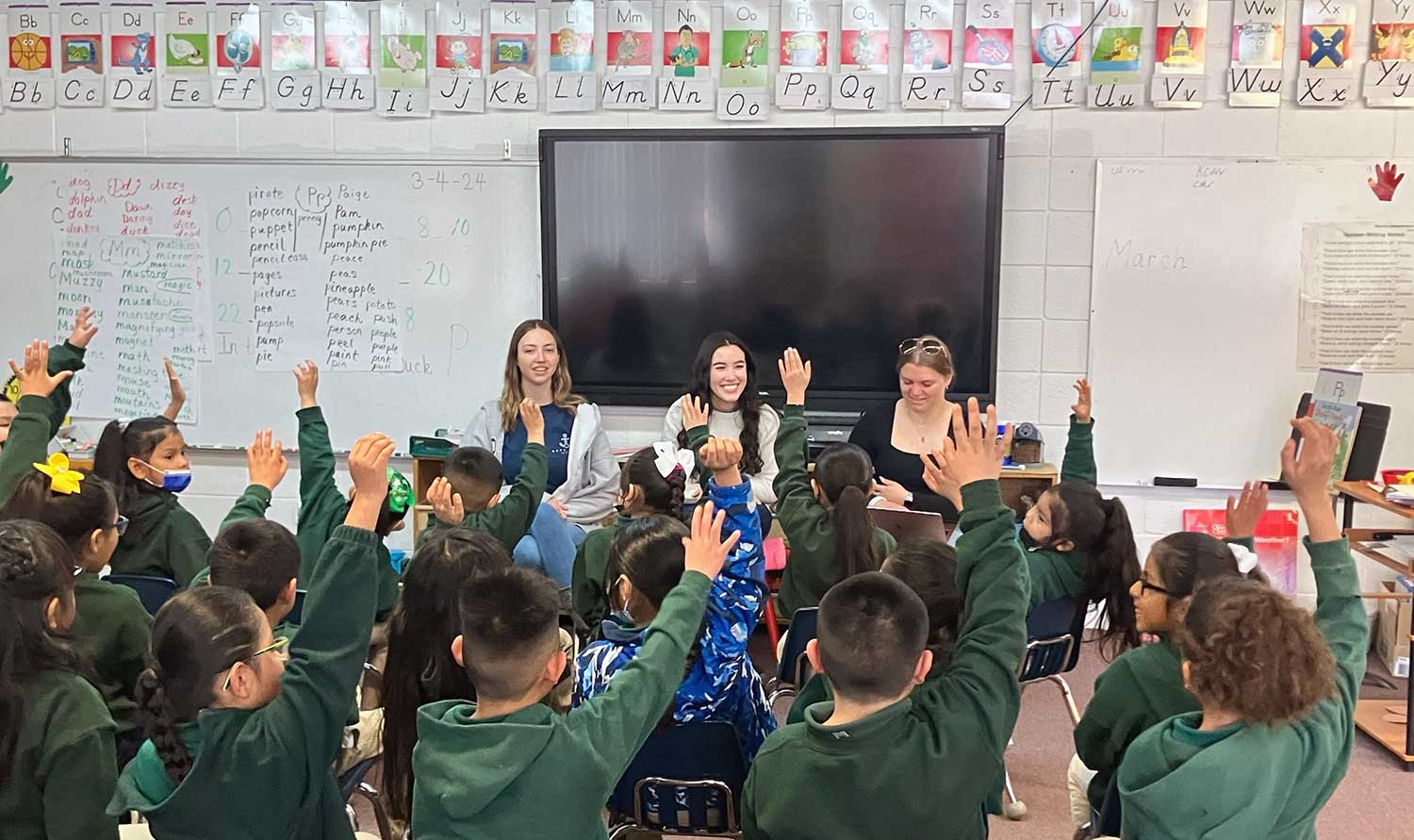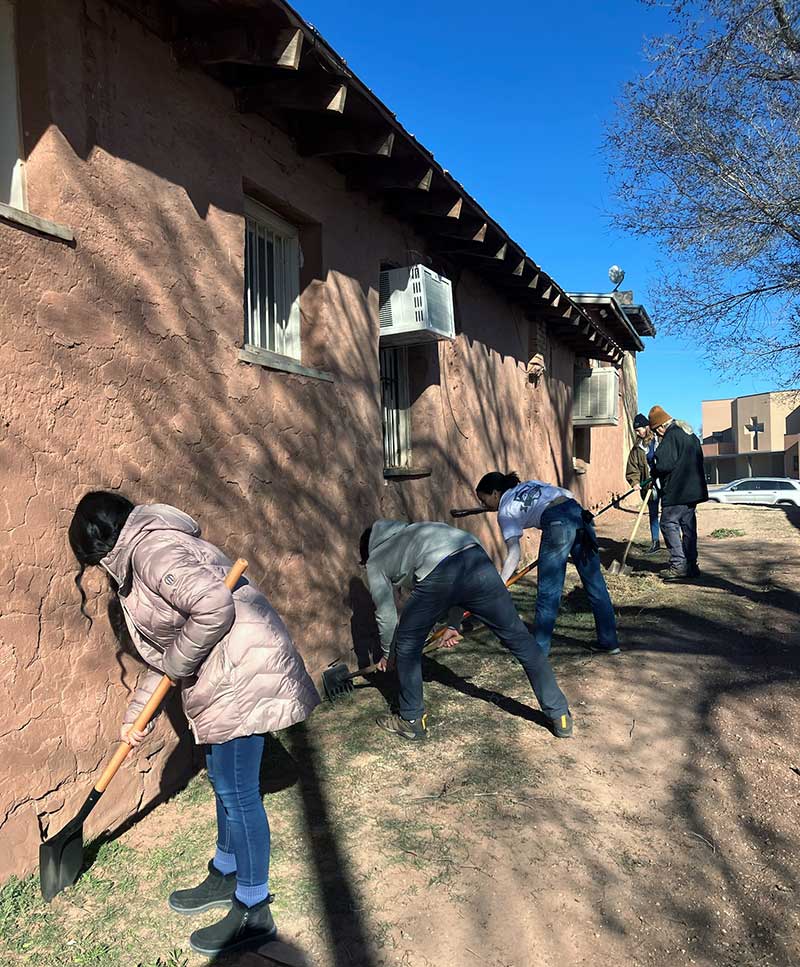Over spring break, many students go to the beach or return home for rest and relaxation. This year, however, seven Florida Gulf Coast University Honors College students spent their spring break doing service-learning with a Native American community on the Zuni Pueblo.
The Zuni reservation covers about 723 square miles of land in western New Mexico along the Arizona border and is home to just under 8,000 tribal members. The area is known for its stark beauty and rich local culture. But the Zuni tribe is suffering. Thirty-six percent of the residents fall below the income poverty line, according to the New Mexico Department of Health, which is well above the 11.5% national average. Moreover, obesity and diabetes plague the tribe as residents’ access to healthy food is limited.

Debra Giambo, a professor in FGCU’s College of Education, has led three student trips to the pueblo, which is part of the Zuni Native American Reservation. The first took place in 2019, but the trips’ roots trace back decades.
“When I first started teaching about 30 years ago, my first year of teaching was on the Zuni reservation,” Giambo said. “Since that time, I have kept in touch with some students, some colleagues and some family members of my students.”
You might also be interested in this story:
Naples center fills need for early childhood learning in Collier
Giambo returned to the reservation several times in the following years. While visiting in 2018, her colleague, Luis Garrido, suggested bringing students to the area. After considering the idea, Giambo designed a course as part of her work as an Honors College faculty fellow. It covers the Zuni Pueblo and its local culture, language and history.
Supported in part by the Honors College, Giambo, Garrido and their students returned to St. Anthony’s Catholic School, the school where Giambo taught years ago. This year, the students delivered presentations on sustainability.


“Our class developed an activity relating to sustainability and our major or area of interest,” said Cameron Smith, a senior anthropology major from Palm Harbor, Florida. “For example, in archaeology and anthropology we do something called garbology, where you use garbage to simulate an excavation site. So we did that activity with paper cutouts at the school.”
It was opportunities like these to serve others that convinced many students to join the trip.
“When I was in high school, I was involved with volunteering in my school and outside of school. It was something that I definitely wanted to continue doing in college. I saw that as an opportunity to serve,” said Katie Souza, a first-year journalism student from Sarasota, Florida.
You might also be interested in this story:
How one Colloquium instructor brought a little piece of Fort Myers to Kenya
The group also toured the Zuni Eagle Aviary, a local museum and cultural site. Eagles play a significant role in Zuni religion, and their feathers are incorporated into Zuni religious dances and ceremonies. The aviary is, thus, important in the local culture — more so because it is home to injured eagles that the Zuni care for.
Giambo and her students were fortunate enough to witness religious dances while they were on the pueblo, which Giambo called “a tremendous privilege and opportunity.”

The students also met with the tribal council and had dinners each evening with speakers, including a local painter, a nurse administrator and an archaeologist, who discussed various aspects of local life. Their conversations were educational, but Giambo and the FGCU students said a great deal of learning took place while they were engaged in their service as well.
“Everyone was so friendly. They were so hospitable,” Souza recalled. “They were so willing to teach us more about this culture, and that was just amazing.”
“I wouldn’t be able to separate out the educational component and the service component because in every place where we work, there is also an exchange,” said Giambo. “Our community agencies and partners very willingly and generously spent time explaining their work and answering students’ questions.
“When I say it was a service-learning trip, it really was service and learning integrated throughout.”
You might also be interested in this story:
FGCU students making a difference through Millennium Fellowships
Giambo said that students who have gone on the trip tell her “they have really developed a deep sense of cultural sensitivity that they see as applicable to other aspects of their lives.”
Smith agreed, saying his biggest takeaway from the trip is the resilience of the Zuni people. He added that he doesn’t regret missing out on the stereotypical spring break parties that took place while he was in New Mexico.
“Some people may have a couple of nights they don’t remember, but I will never forget this trip, you know?” said Smith.
Souza agreed with the sentiment and said the experience has influenced how she wants to spend future spring breaks.
“I’m already on the lookout for what trips there are next year,” said Souza. “It was a really good experience. It may be hard to find another trip as good as this one.”